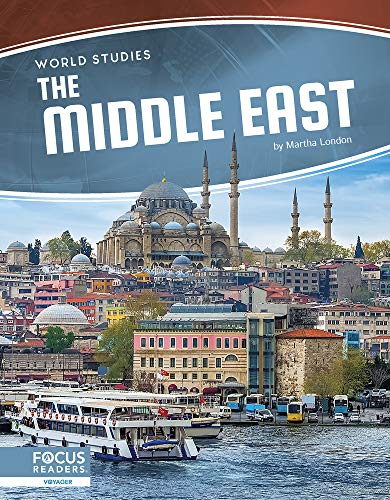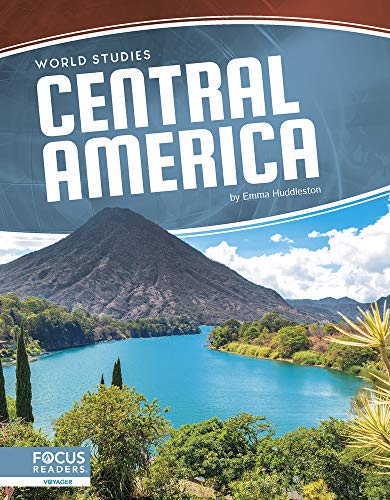-
Climate Change and Migration: Evidence from the Middle East and North Africa
Quentin Wodon, Andrea Liverani, George Joseph, Nathalie Bougnoux
Paperback (World Bank Publications, July 10, 2014)Climate change and migration are major concerns in the MENA region, yet the empirical evidence on the impact of climate change and extreme weather events on migration remains limited. Information is broadly lacking on how households in vulnerable areas perceive changes in the climate, how they are affected by extreme weather events, whether they benefit from community and government programs to help them cope with and adapt to a changing climate, and how these conditions influence the decision of household members to migrate, either temporarily or permanently. This introductory chapter summarizes briefly the main results of the study which relied on existing data as well as focus groups and new household surveys collected in 2011 in Algeria, Egypt, Morocco, Syria, and Yemen. The results suggest that households do perceive important changes in the climate, and that many households are being affected by extreme weather events resulting in losses in income, crops, and livestock. The coping and adaptation strategies used by households to deal with weather shocks are diverse, but also limited, with most households not able to recover from the negative impact of weather shocks. The ability of community level responses and government programs to support households is also very limited. Finally, while climate change is not today the main driver of migration flows, it does appear to contribute substantially to these flows, so that worsening climatic conditions are likely to exacerbate future migration flows.
-
The Middle East
Martha London
Paperback (Focus Readers, Jan. 1, 2021)This title introduces readers to the region of the Middle East. Concise text, thought-provoking discussion questions, and compelling photos give the reader an insightful look into the Middle East's rich and complex histories, natural environments, economies, governments, and peoples.
-
Reducing the Vulnerability of the Former Yugoslav Republic of Macedonia's Agricultural Systems to Climate Change: Impact Assessment and Adaptation Options
William R. Sutton, Jitendra P. Srivastava, James E. Neumann, Kenneth M. Strzepek, Brent B. Boehlert
Paperback (World Bank Publications, Oct. 29, 2013)Agriculture is one of the most climate-sensitive of all economic sectors. In many countries, such as in FYR Macedonia, the risks of climate change are an immediate and fundamental problem because the majority of the rural population depends either directly or indirectly on agriculture for their livelihoods. The risks of climate change to agriculture in FYR Macedonia cannot be effectively dealt with―and the opportunities cannot be effectively exploited―without a clear plan for aligning agricultural policies with climate change, developing the capabilities of key agricultural institutions, and making needed investments in infrastructure, support services and on-farm improvements. Developing such a plan ideally involves a combination of high-quality quantitative analysis, consultation with key stakeholders, particularly farmers and local agricultural experts, and investments in both human and physical capital. The experience of FYR Macedonia, highlighted in this work, shows that it is possible to develop a plan to meet these objectives―one that is comprehensive and empirically driven as well as consultative and quick to develop. The approach of this study is predicated on strong country ownership and participation, and is defined by its emphasis on “win-win” or “no regrets” solutions to the multiple challenges posed by climate change for farmers in FYR Macedonia. The solutions are measures that increase resilience to future climate change, boost current productivity despite the greater climate variability already occurring, and limit greenhouse gas emissions. Reducing The Vulnerability of FYR Macedonia's Agricultural Systems to Climate Change: Impact Assessment and Adaptation Options applies this approach to the FYR Macedonia with the goal of helping the country mainstream climate change adaptation into its agricultural policies, programs, and investments. The study projects impacts of climate change on agriculture across FYR Macedonia’s three agro-ecological areas through forecast variations in temperature and rainfall patterns so crucial to farming. It offers a map for navigating the risks and realizing the opportunities, outlined through a series of consultations with local farmers. A detailed explanation of the approach is provided for those who would like to implement similar programs in other countries of Europe, Central Asia, or anywhere else in the world. This is one of four country studies that were produced under the World Bank’s program, “Reducing Vulnerability to Climate Change in European and Central Asian Agricultural Systems”. The other countries included in this series are Albania, Moldova, and Uzbekistan. The results from the four studies are consolidated in the book Looking Beyond the Horizon: How Climate Change Impacts and Adaptation Responses Will Reshape Agriculture in Eastern Europe and Central Asia website.
-
Reducing the Vulnerability of Georgia's Agricultural Systems to Climate Change: Impact Assessment and Adaptation Options
Nicolas Ahouissoussi, James E. Neumann, Srivastava Jitendra, Cüneyt Okan, Peter Droogers
Paperback (World Bank Publications, May 13, 2014)Agriculture is one of the most climate-sensitive of all economic sectors. Georgia is one of the many countries where the majority of the rural population depends on agriculture―directly or indirectly―for their livelihood. Further, changes in climate and their impacts on agricultural systems and rural economies are already evident throughout Europe and Central Asia. The risks associated with climate change therefore pose an immediate and fundamental problem in the country.Adaptation measures now in use in Georgia, largely piecemeal efforts, will be insufficient to prevent impacts on agricultural production over the coming decades. As a result, there is growing interest at country and development partner levels to have a better understanding of the exposure, sensitivities, and impacts of climate change at the farm level, and to develop and prioritize adaptation measures to mitigate the adverse consequences. Beginning in 2009, the World Bank embarked on a program for selected Eastern Europe and Central Asian (ECA) client countries to enhance their ability to mainstream climate change adaptation into agricultural policies, programs, and investments. This multi-stage effort has included activities to raise awareness of the threat, analyze potential impacts and adaptation responses, and build capacity among client country stakeholders and ECA Bank staff with respect to climate change and the agricultural sector. This study, Reducing the Vulnerability of Georgia’s Agricultural Systems to Climate Change, is the culmination of efforts by the Georgian institutions and researchers, the World Bank, and a team of international experts jointly undertake an analytical study to address potential impacts climate change may have on Georgia’s agricultural sector, but, more importantly, to develop a list of prioritized measures to adapt to those impacts.Specifically, this study provides a menu of options for climate change adaptation in the agricultural and water resources sectors, along with specific recommended actions that are tailored to distinct agricultural regions within Georgia. These recommendations reflect the results of three inter-related activities, conducted jointly by the expert team and local partners: 1) quantitative economic modeling of baseline conditions and the effects of certain adaptation options; 2) qualitative analysis conducted by the expert team of agronomists, crop modelers, and water resource experts; and 3) input from a series of participatory workshops for farmers in each of the agricultural regions. Reducing the Vulnerability of Georgia’s Agricultural Systems to Climate Change is part of the World Bank Studies series. These papers are published to communicate the results of the Bank’s ongoing research and to stimulate public discussion. The study is one of three produced under the World Bank program “Reducing Vulnerability to Climate Change in European and Central Asian Agricultural Systems.” The other countries included in this series are Armenia and Azerbaijan. World Bank Studies are available individually or on standing order. This World Bank Studies series is also available online through the World Bank e-library (www.worldbank.org/elibrary).
-
South America Set
Michael Regan
Library Binding (Focus Readers, Jan. 1, 2021)"Explores the history and geography of South America, including the countries located there, climate, natural resources, economy, and more! Includes landmark and animal profile special features"--
-
Oceania
Martha London
Paperback (Focus Readers, Jan. 1, 2021)This title introduces readers to the region of Oceania. Concise text, thought-provoking discussion questions, and compelling photos give the reader an insightful look into Oceania's rich and complex histories, natural environments, economies, governments, and peoples.
-
Africa
Kelsey Jopp
Paperback (Focus Readers, Jan. 1, 2021)This title introduces readers to the region of Africa. Concise text, thought-provoking discussion questions, and compelling photos give the reader an insightful look into Africa's rich and complex histories, natural environments, economies, governments, and peoples.
-
North America
Martha London
Paperback (Focus Readers, Jan. 1, 2021)This title introduces readers to the region of North America. Concise text, thought-provoking discussion questions, and compelling photos give the reader an insightful look into North America's rich and complex histories, natural environments, economies, governments, and peoples.
-
Africa
Kelsey Jopp
Library Binding (Focus Readers, Jan. 1, 2021)"Describes the countries and peoples of Africa, including their history, climate, plants and animals, government, and more. Includes "Culture Profile" and "Landmark Profile" special features"--
-
Oceania
Martha London
Library Binding (Focus Readers, Jan. 1, 2021)"Describes the countries and peoples of Oceania, including their history, politics, plants and wildlife, and more. Includes "Culture Profile" and "Landmark Profile" special features"--
-
The Middle East
Martha London
Library Binding (Focus Readers, Jan. 1, 2021)"Describes the countries of the Middle East, including the history, geography, governments, economies, and cultures of the region. Includes critical "Think About It" questions and "Landmark Profile" and "Animal Profile" special features"--
-
Central America
Emma Huddleston
Paperback (Focus Readers, Jan. 1, 2021)This title introduces readers to the region of Central America. Concise text, thought-provoking discussion questions, and compelling photos give the reader an insightful look into Central America's rich and complex histories, natural environments, economies, governments, and peoples.